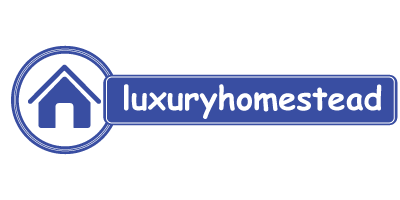It was spring 2022 when Sarah and Jake, a young couple from Seattle, first fell in love with Canada. After years of road trips through British Columbia and summer vacations by the crystal-clear lakes of Ontario, they began dreaming of owning their piece of the Canadian wilderness. In the middle of their demanding jobs, escaping to a lakeside cabin or a modern condo in Vancouver became more than just a daydream—it became their goal. But as they sat at their dining table one evening, maps spread out and real estate listings flashing on their laptops, the question became unavoidable: “Can Americans buy property in Canada?”
Sarah and Jake’s story is not unique. Thousands of Americans are captivated by the idea of owning property in Canada, whether a retirement home, a summer retreat, or even an investment property. However, the process of buying real estate as a foreigner can be complex, especially with recent changes to Canadian regulations aimed at cooling the housing market.
This article will guide you through the rules, opportunities, and challenges of buying property in Canada as an American. We’ll explore what you need to know about eligibility, taxes, financing, and the current state of the Canadian real estate market.
Can Americans Buy Property in Canada? The Simple Answer
Yes, Americans Can Buy Property in Canada
The short answer to Sarah and Jake’s question is yes—Americans can legally buy property in Canada. Canada does not restrict foreign ownership of real estate, meaning U.S. citizens are free to purchase property in the country, whether it’s a residential home, vacation property, or investment real estate. Unlike some countries that impose strict limitations on foreign buyers, Canada generally treats non-resident buyers in the same way as Canadian citizens regarding property ownership. However, that’s where the simplicity ends.
While Americans can buy property in Canada, there are additional rules, taxes, and logistical considerations to consider. Understanding these complexities is crucial before making any significant financial commitment.
Canadian Real Estate: A Hot Market with Cooling Measures
The Real Estate Boom and Government Interventions
Canada has long been a favourite destination for foreign investors, including Americans. With its stable political environment, strong economy, and vast natural beauty, Canada offers diverse real estate opportunities, from luxury condos in Toronto and Vancouver to expansive rural estates in British Columbia and Alberta. However, in recent years, the Canadian real estate market has experienced significant price increases, particularly in urban centers, leading to concerns about housing affordability.
According to Statista, the average home price in Canada rose from CAD 480,000 in 2015 to over CAD 700,000 by 2023, a staggering 45% increase in just eight years. Prices have escalated even more dramatically in major cities like Vancouver and Toronto. The average home price in Vancouver reached CAD 1.2 million in 2023, making it one of North America’s most expensive housing markets.
To address skyrocketing home prices, the Canadian government introduced several measures to cool the market, one of the most notable being the Foreign Buyers Ban enacted on January 1, 2023. The Prohibition on the Purchase of Residential Property by Non-Canadians Act temporarily bars foreign buyers, including Americans, from purchasing residential property in Canada for two years. This legislation is intended to stabilize housing affordability by reducing competition from international buyers. However, there are notable exceptions.
The 2023 Foreign Buyers Ban: What Americans Need to Know
The Foreign Buyers Ban has created confusion for many prospective American buyers. Here’s what you need to know:
- Exceptions Exist: While the ban covers most foreign buyers, there are important exceptions for temporary residents. Americans living in Canada on valid work or study permits can still purchase residential property under certain conditions. Moreover, the law does not apply to vacation properties or recreational land, such as cottages or cabins, located outside major urban areas.
- Vacation Homes and Rural Properties Are Still Fair Game: If you’re looking to buy a cabin in rural Ontario or a beachfront home in Nova Scotia, you’re in luck. The ban focuses on urban residential properties, meaning vacation homes and rural real estate are still available to foreign buyers, including Americans.
- The Ban Is Temporary: The law will expire at the end of 2024 unless the government extends it. After this period, the restrictions could be lifted, or new regulations may take their place.
Financing and Taxes: Understanding the Costs
Financing Options for Americans
When Sarah and Jake began researching how to finance their dream home in Canada, they quickly realized that securing a mortgage as a non-resident comes with its own set of challenges. While Canadian banks, such as RBC (Royal Bank of Canada) and TD Bank, offer mortgage services to American buyers, they often require larger down payments than Canadian citizens.
Typically, Americans purchasing property in Canada must provide a down payment of 35% or more. Interest rates may also be slightly higher for non-residents. Additionally, American buyers must provide extensive documentation, including proof of income, U.S. credit reports, and details about their assets and liabilities.
Taxes: Be Prepared for Extra Costs
Beyond the purchase price, buying property in Canada comes with additional tax obligations for American buyers. Some key taxes include:
- Non-Resident Speculation Tax (NRST): In certain provinces, like Ontario and British Columbia, foreign buyers must pay a Non-Resident Speculation Tax. In Ontario, for instance, the NRST is set at 25% of the purchase price for properties in the Greater Golden Horseshoe region, including Toronto, as of 2023.
- Property Taxes: Like Canadian citizens, foreign buyers must pay annual property taxes based on the home’s assessed value. These taxes can vary significantly depending on the province and municipality.
- Capital Gains Tax: If you sell your Canadian property, you may be subject to Canadian capital gains tax. While the principal residence exemption allows Canadian residents to avoid capital gains taxes on their primary home, this exemption does not apply to non-residents. However, as a U.S. citizen, you must also report the sale to the IRS, as U.S. tax laws require you to declare foreign property sales.
Where Are Americans Buying? Popular Regions for U.S. Buyers
British Columbia: The Pacific Northwest Dream
British Columbia, particularly Vancouver and the surrounding areas, is one of the most popular destinations for American buyers. Its proximity to the U.S. border, stunning natural landscapes, and cultural diversity make it a hotspot for vacation homes and investment properties. According to Zillow, Vancouver’s average home price in 2023 was approximately CAD 1.2 million, with detached homes often exceeding CAD 2 million.
However, with the foreign buyer ban in effect, many Americans have turned their attention to more rural areas like the Okanagan Valley or Vancouver Island, where vacation properties remain an option.
Ontario: Urban Appeal and Lakeside Retreats
Toronto, Ontario’s capital, remains a prime destination for U.S. buyers, particularly those interested in urban living and access to international business hubs. However, Ontario’s foreign buyer taxes, as well as the 2023 restrictions, have led some Americans to explore more affordable options in cities like Ottawa or Hamilton, as well as lakeside cottages in regions like Muskoka, often referred to as “the Hamptons of the North.”
According to Realtor.com, the average home price in Toronto was CAD 1.1 million in 2023, with waterfront properties in Muskoka fetching between CAD 1.5 million and CAD 5 million, depending on size and location.
Nova Scotia and Prince Edward Island: Coastal Charm
Nova Scotia and Prince Edward Island (PEI) have gained popularity among American buyers seeking more affordable options. The East Coast offers coastal charm, relaxed living, and much lower home prices than Vancouver or Toronto. In 2023, CBC reported that the average home price in Nova Scotia was CAD 400,000, making it an attractive option for buyers looking to stretch their budget while enjoying scenic views and quiet living.
The Future of U.S. Investment in Canadian Real Estate
The question remains: What does the future hold for Americans looking to buy property in Canada? While the foreign buyer ban is set to expire in 2024, Canada does not guarantee a return to pre-ban policies. However, Canadian real estate remains a desirable investment for many Americans, thanks to the country’s strong economy, political stability, and natural beauty.
For buyers like Sarah and Jake, the dream of owning a home in Canada is alive—though it requires careful navigation of taxes, regulations, and financing. Whether it’s a lakeside cottage, a chic urban condo, or a sprawling rural estate, Canada offers many opportunities for those willing to explore its diverse real estate market.



